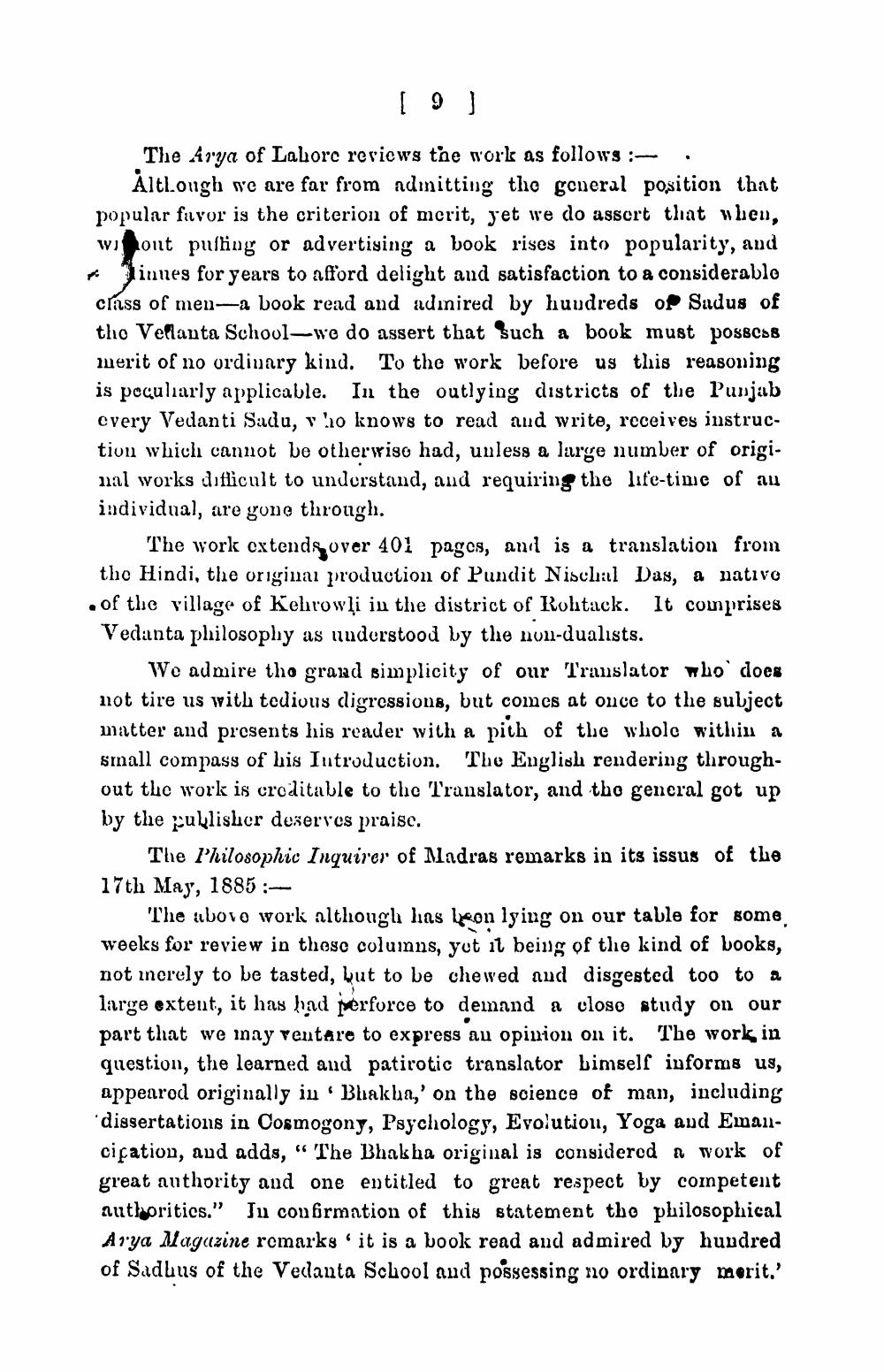________________
[ 9 ]
The Arya of Lalorc reviews the work as follows:- . Although we are far from adınitting the general position that popular fuvor is the criterion of mcrit, yet we do assort that when, w ont pulling or advertising a book rises into popularity, and
Vinues for years to afford delight and satisfaction to a considerablo class of men—a book read and adinired by hundreds of Sudus of tho Velianta School - we do assert that such a book must possess merit of no ordinary kind. To the work before us this reasoning is pocularly applicable. In the outlying districts of the Punjab every Vedanti Sadu, vo knows to read and write, receives instruction which cannot be otherwiso had, unless a large number of original works diflicult to understand, and requiring the life-time of au individual, are gone through.
The work extends over 401 pagos, anil is a translation from tho Hindi, the original production of Pundit Nischal Das, a nativo of the village of Kehrowļi in the district of Rohtack. It comprises Vedanta philosophy as understood by the non-dualists.
We admire the grand simplicity of our Translator who does not tire us with tedious digressions, but comes at once to the subject matter and presents his reader with a pith of the whole within a small compass of his Introduction. The English rendering throughout the work is croditable to the Translator, and tho general got up by the publisher deserves praise.
The Philosophic Inquirer of Madras remarks in its issus of the 17th May, 1885 :
The abovo work although has leon lying on our table for some. weeks for review in these columns, yet it being of the kind of books, not inerely to be tasted, but to be chewed and disgested too to a large extent, it has had perforce to demand a closo study on our part that we inay ventare to express au opinion on it. The work in question, the learned and patirotic translator bimself informs us, appearod originally iu . Bhakha,' on the science of man, including dissertations in Cosmogony, Psychology, Evolution, Yoga and Eman
on, and adds, “ The Bhakha original is considered a work of great authority and one entitled to great respect by competent authoritics." Ju confirmation of this statement the philosophical Arya Magazine remarks ' it is a book read and admired by hundred of Sadlus of the Vedanta School and possessing no ordinary merit.'




